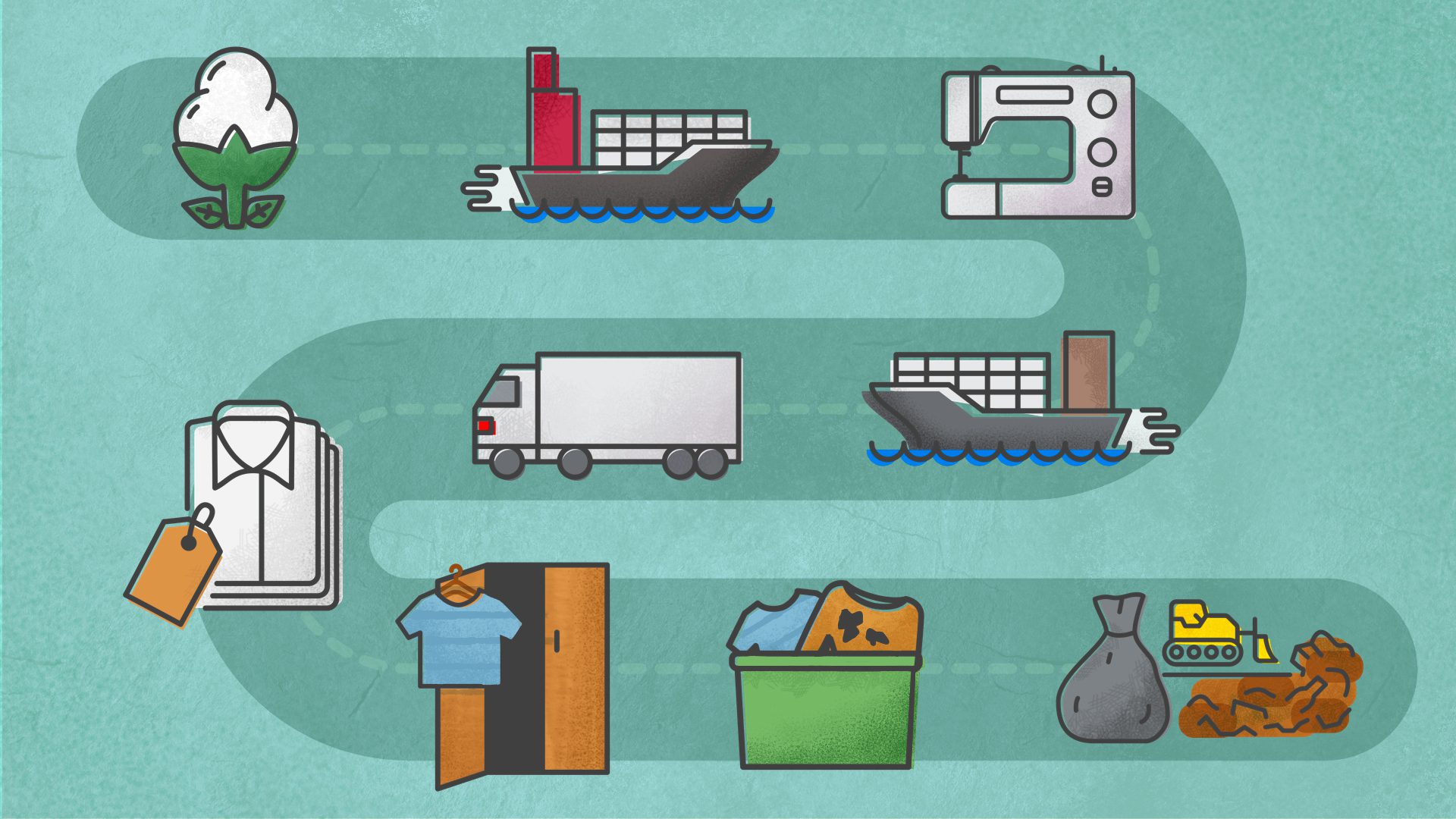- April 18, 2025
- By Sala Levin ’10
These days, the cheap cotton T-shirts stuffed into your dresser—the ones you get at 5K runs, volunteering events or especially well-organized bachelorette parties—might see little of the world beyond your scuzzy shower when you throw one on to scrub the tile grout. But at one time, those shirts were world travelers, likely making two transoceanic voyages on their journeys from cotton fields to retailers’ shelves.
The life cycle of a typical tee is a story of globalization in miniature: how the process of creating products, then buying, selling and disposing of them has expanded beyond American borders to include countries in Asia, Africa and South America. In one University of Maryland class, that simple T-shirt is a glimpse into some of the political and economic forces at play in the U.S. today.
“Pocketbook Politics: A History of American Buying and Selling,” taught by Katarina Keane Ph.D. ’09, assistant director of undergraduate studies and lecturer in the history department, uses the history of the nation’s consumption and consumerism as a lens through which to understand its social and political trends. The class begins with the American Revolution and the boycott of British tea, and continues through contemporary consumer culture.
“Shopping is a big part of the American economy—it’s something we do every day,” said Keane, who developed the course and has been teaching it for over a decade. “I thought we could tell the history of shopping and hit some bigger questions about consumer power in the way people use their buying choices as political or social acts.”
Keane’s lectures span topics such as black market consumerism, the Zoot Suit Riots of 1943 and the history of credit cards. Students learn how buyers have launched boycotts—or their inverse, “buycotts”—to influence what they see as unjust policies, as civil rights activists did in the 1960s when they refused to shop at stores that upheld discriminatory Jim Crow practices.
“Every time we come out of class, I’m thinking, ‘What are lessons we could take from these boycotts and the strategies they used? How could I and other people my age apply that now to make an impact?’” said Rohan Warrier ’28, an economics major. “This class makes me think more than any other class I’ve had in my entire schooling career since kindergarten.”
The course’s culminating project this semester asks students to engage in an exercise updating a longtime exhibit on consumer culture in the National Museum of American History. “They’re designing panels that would be added to the exhibit that talk about critics of consumerism, environmental consequences, values in a consumer society, or people left out of a consumer society,” said Keane.
“Pocketbook Politics” has opened some students’ eyes to an entirely new way of thinking about American history. “On the very first day, Dr. Keane said that in her opinion, the reason why so many common folks were involved in the American Revolution was because their freedom to shop was being taken away,” said Warrier. “I like that we’re looking at historical events from the perspective of how it impacted the everyday consumer.”
The class has also shaped students’ personal habits. “I already tried really hard to be a conscious consumer and thrift a lot of my clothes and pay attention to what I’m buying,” said government and politics major Lexi Sens ’28, “but this class has taught me a lot about the importance of where you buy and what those corporations are doing.”
Take This Class! is an occasional series that profiles unique and engaging courses available to any undergraduate student at the University of Maryland. Got a class you’d recommend? Email snlevin@umd.edu.
“Pocketbook Politics: A History of American Buying and Selling” (HIST289R)
- Satisfies: General education requirements in Distributive Studies-Humanities and Signature Courses-Big Questions
- Next time you can take it: Spring 2026
- A fun fact you’ll learn: Because pharmacists could legally prescribe whiskey during Prohibition for "medicinal purposes," the number of pharmacies in New York City in the 1920s tripled.
- Summary: The course traces the history of American consumerism and consumption from the Revolutionary War era through the present day, exploring how commerce reflects political and social trends.
Topics
Campus & Community